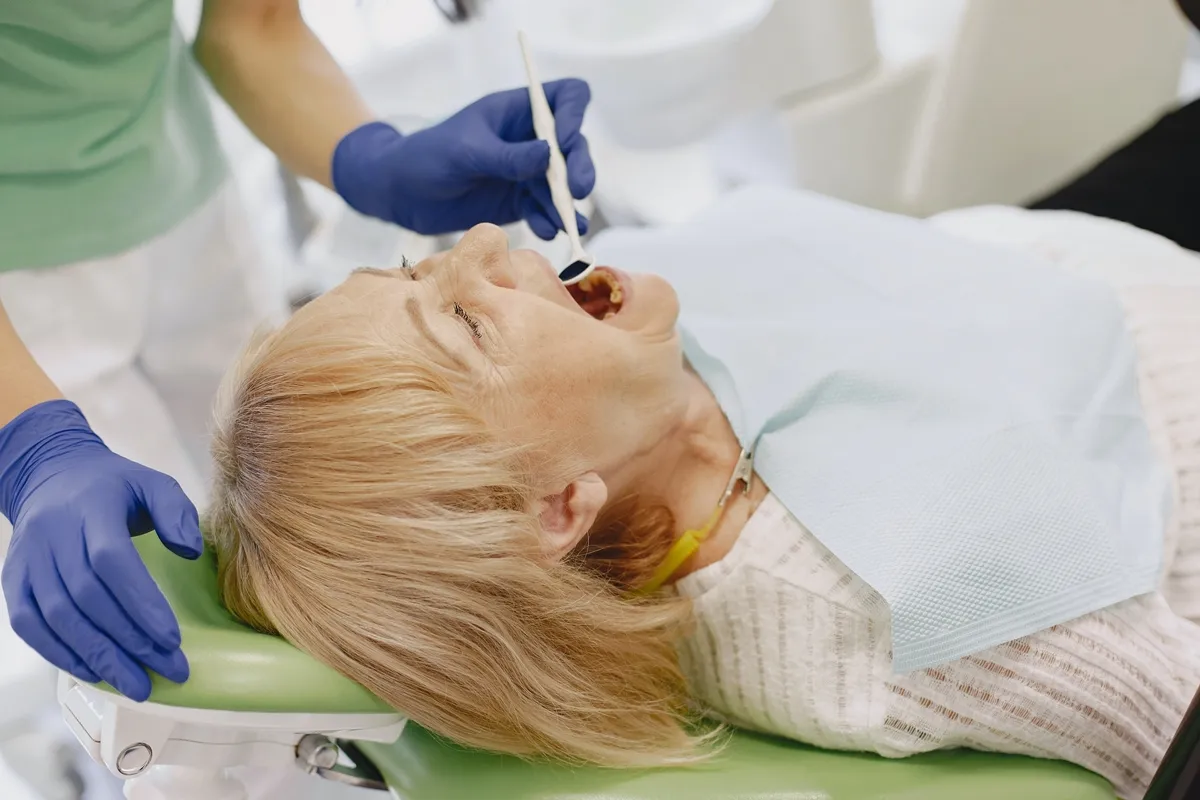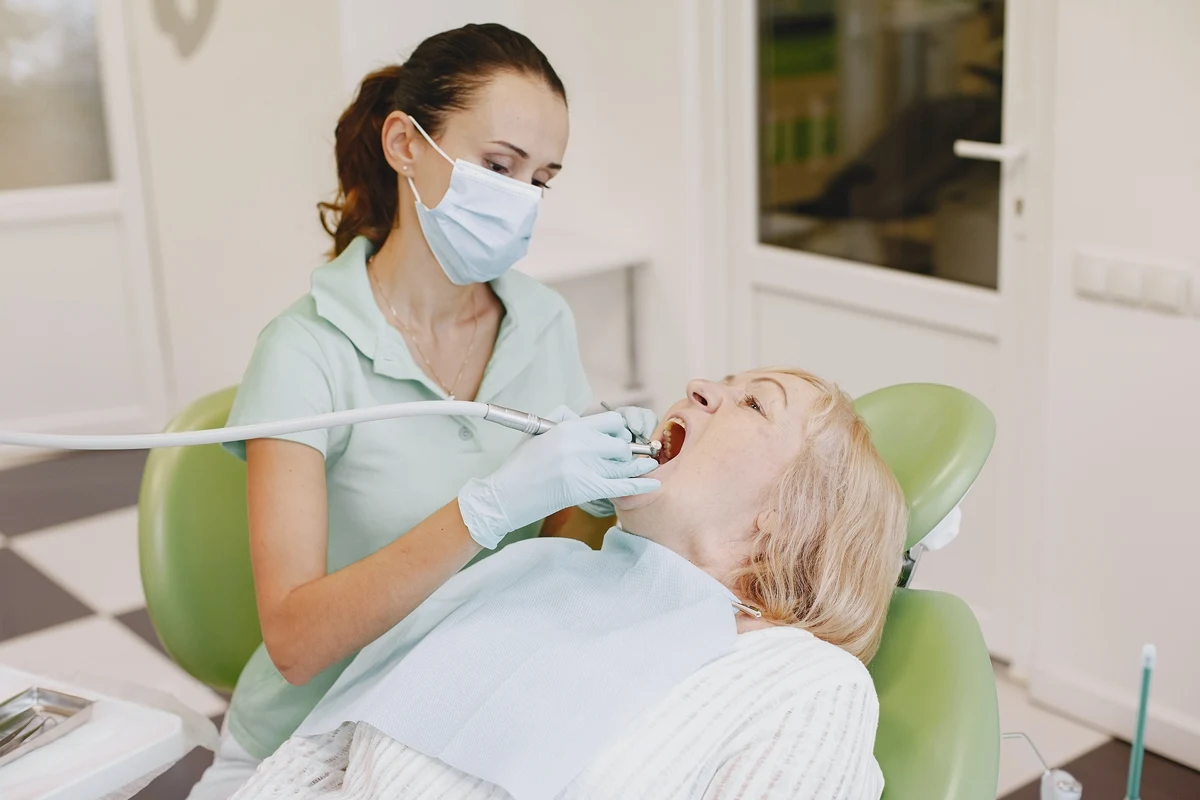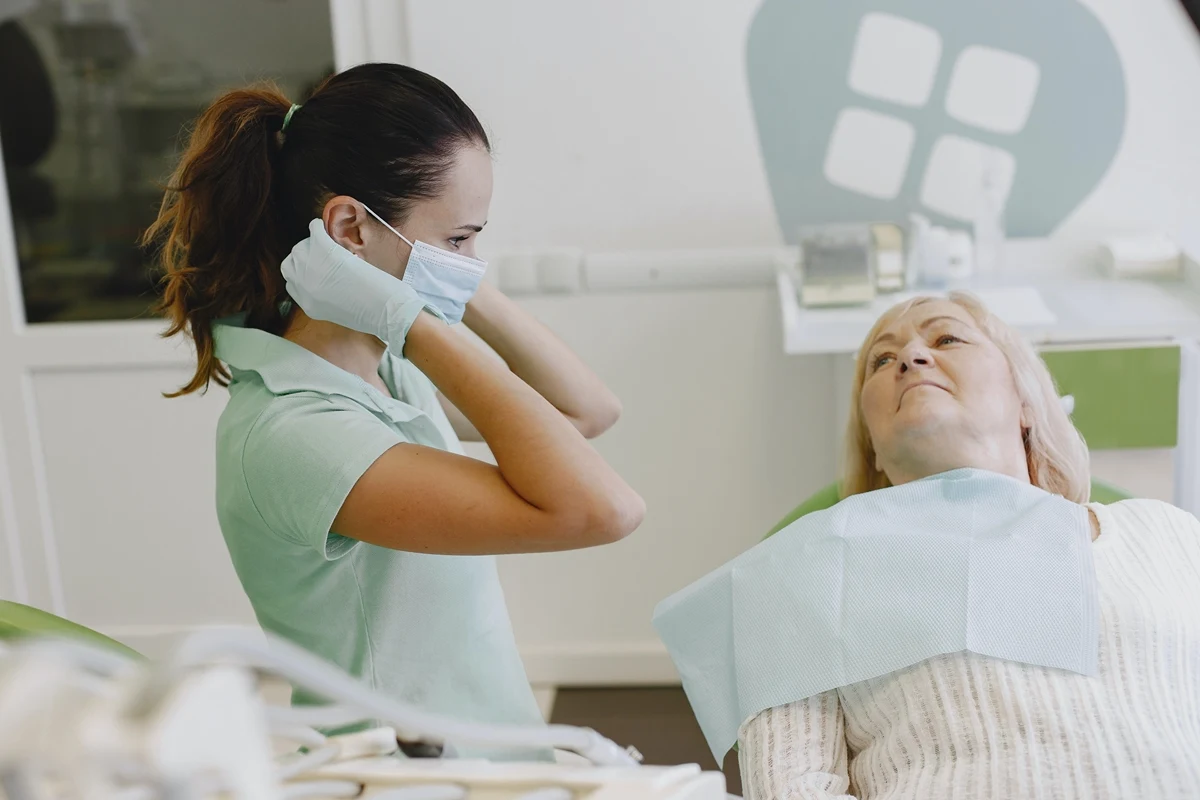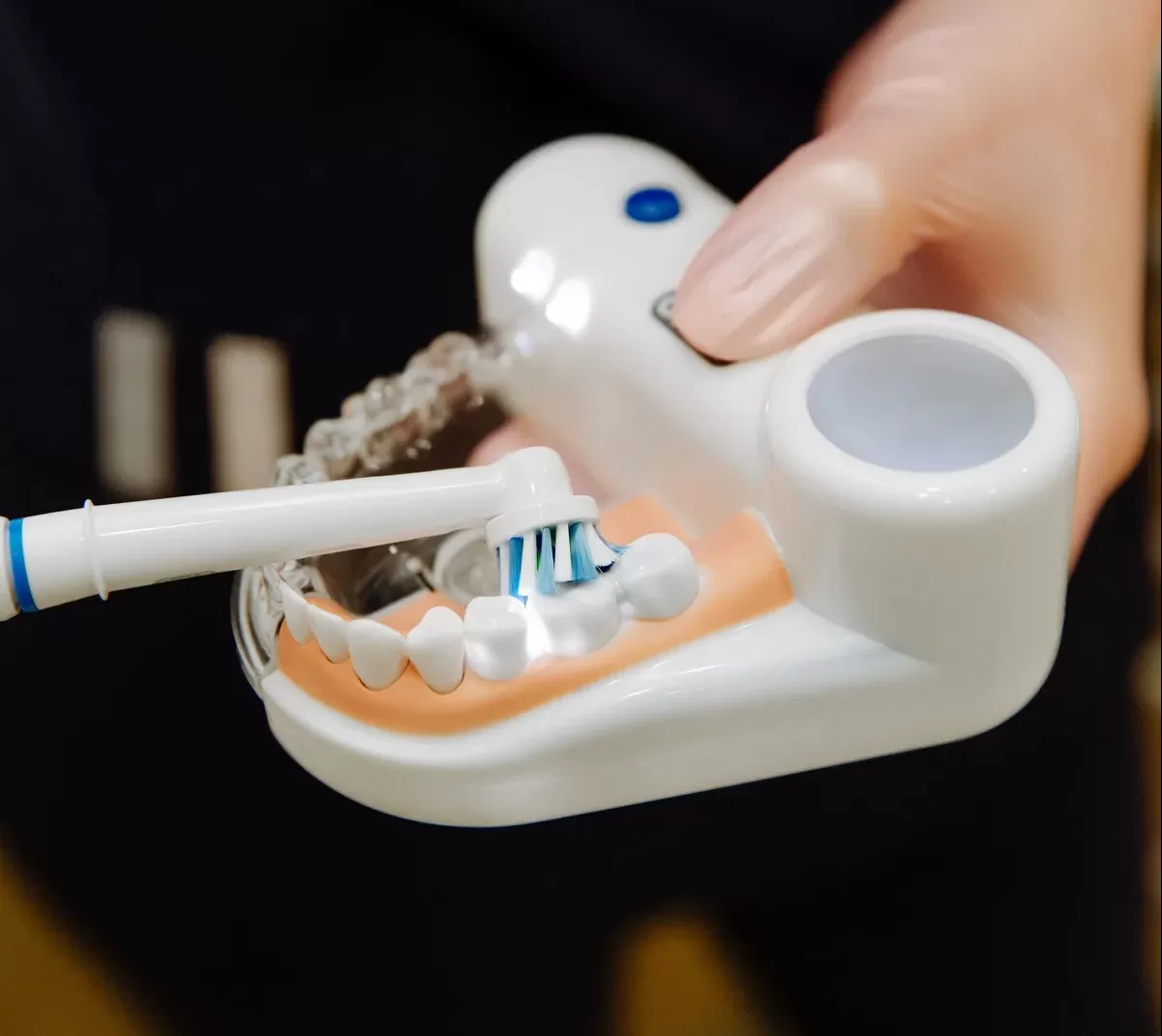Are you experiencing menopause? If so, it’s important to be aware of how it can affect your oral health. That’s right! Unfortunately, menopause has a significant impact even on your teeth and gums. How? Menopause’s hormonal changes can cause a decrease in saliva production, which can lead to an increase in tooth decay, gum disease, and other oral health issues. Furthermore, menopause can cause dry mouth, making it difficult to maintain excellent oral hygiene and increasing the risk of getting cavities. Good oral hygiene and regular dental visits can help reduce the likelihood of experiencing dental problems during menopause. This post will explain how to modify your dental hygiene routine to accommodate the changes brought on by menopause. Continue reading to find out more.
What happens to your teeth and gums during menopause?

Hormone levels affect oral health
Menopause makes the gums softer and can cause sensitive teeth. We know that there are hormone receptors for estrogens and progesterone in the gums. So there is a link between hormone levels and gum health. As a result, hormonal changes have a direct impact on dental and oral health. For example, problems are already more common during puberty and pregnancy. When the protective effect of estrogen decreases due to menopause, many women have to struggle more with superficial gum inflammation, called gingivitis.
Menopause makes gums more susceptible to bacteria
The gums are normally tight and pink. When connective tissue loses firmness after menopause, the gums also become softer, less well supplied with blood and thus more permeable to infection. This can often create a vicious cycle: When the gums are swollen and discolored by inflammation, they bleed much faster. Many women then brush less thoroughly out of fear that it will bleed even more. However, because food debris and bacteria are not entirely removed, plaque forms more easily – and the gingivitis can spread and become a deeper periodontitis. And at some point this means: no more support, loose teeth, even tooth loss … So the later menopause begins, the better for the teeth? At least, you benefit longer from the protection of estrogen. We know from smaller studies that teeth last longer under hormone replacement therapy, but that’s no longer an argument for hormones today.
Menopause: stress can cause reduced saliva production
However, menopause has other consequences as well: The mucous membranes become drier, saliva production decreases. Saliva, on the other hand, is extremely important for dental health: it rinses, protects, repairs, hardens teeth and neutralizes harmful acids. The problem worsens when hormone levels drop. Caries bacteria can therefore attach more easily, especially on exposed root surfaces. Medications are also often (but not always) to blame – antidepressants or high blood pressure medication additionally reduce saliva, as do rheumatic diseases.
Sensitive teeth in menopause: This helps

It is helpful to drink plenty of fluids and, above all, to prefer “chewing-active” foods (such as whole-grain bread, raw vegetable foods, apples) – this stimulates the natural flow of saliva. Smoking is absolutely counterproductive, the same goes for stress. It literally makes our mouth dry. Just as there are artificial tears for dry eyes, by the way, there are saliva substitutes. Women in their 40s can also experience unpleasant tongue burning. The exact cause is not yet known, but scientists suspect a hormonal impact here as well. Switching to a toothpaste without surfactants already benefits some people. Finally, hormone-induced bone loss can also have a detrimental effect on the jaw and subsequently on the anchoring of the teeth.
Dental care during menopause: meticulous brushing once a day is enough
What stops this spiral? Above all, the knowledge that you have to take better care of your dental health after 40. Tooth bed diseases do not cause pain for a long time. When pain occurs, the inflammations are usually already massive. As a result, regular visits to the dentist for control and tooth cleaning are recommended. Tartar propensity is highly individual, owing to genetics, dental hygiene, and environmental factors such as water hardness. Otherwise, meticulous oral hygiene is required. Brushing very carefully once a day is preferable to brushing twice or three times superficially, especially since plaque doesn’t harden within 24 hours. Toothpastes with anti-plaque protection are suitable for prophylaxis, so that bacteria have a harder time attaching themselves.

Electric toothbrushes are gentle on the gums
Are electronic toothbrushes better than manual toothbrushes nowadays? Definitely. Dentists often recommend an electric ultrasonic brush, since it requires little pressure and is gentle on the gums. Or the new electric toothbrush & water flosser combos which make interdental brushes almost superfluous. Some people like to wash their teeth by hand, but they frequently go too far and scrub their gums away. With an electric toothbrush, this is much easier to avoid. In addition to interdental brushes (a good dentist will recommend the right size) and dental floss, mouthwashes help keep interdental spaces clean and germs at bay. It doesn’t always have to be chemicals like chlorhexidine. If used continuously, it can discolor teeth. The experts advise rinsing with anti-inflammatory sage tea or saline solution (1 teaspoon of salt to 1 glass of water).

Laser and ultrasound against inflammation
And if there are already foci of inflammation? Today, dentists have many ways to preserve teeth for as long as possible. For example, they can perform root planing, treat inflamed gum pockets with laser or ultrasound, and use antimicrobial agents. Additional irritation should be avoided as much as possible in addition to care. To protect the gums, avoid tobacco, alcohol, strong spices, vinegar, mustard, and hard crusty breads for a while.
Gum inflammation can bring other problems
But: inflammation puts a strain on the organism and can lead to problems that affect the whole body. For example, periodontitis patients are three times more likely to have rheumatoid arthritis than people with healthy teeth. Moreover, there are interactions between diabetes and periodontitis.
